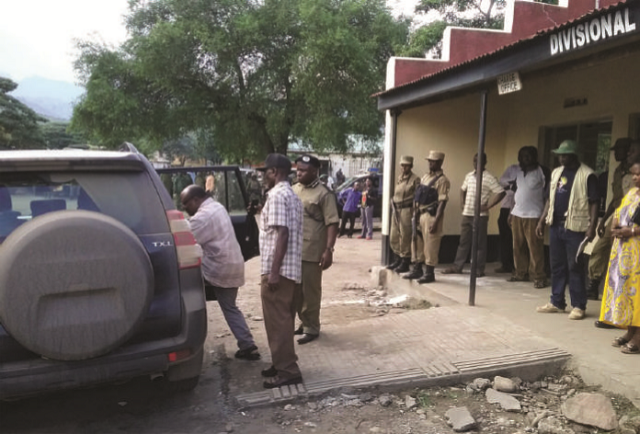
“We should handle it the Magufuli way because it is creating for us more problems and making the electorate to lose confidence in the government,” he told The Independent, “So because of these issues, we must be headed for tougher times in the long term.”
For this situation to be averted, he says, government must deal with these issues. “We must deal with corruption very firmly and we must review our expenditures and spend on priority areas,” he said, “Government-opposition relations must also be reviewed because this stance is costing us.”
Museveni’s long stay
For renowned human rights lawyer Nicholas Opiyo, the problem the country faces in 2017 is a result of what Mushemeza and his ilk support; Museveni’s long and continuing grip on power. Museveni has been in power 31 years.
According to Opio, this is too long. Yet Museveni appears keen to extend his rule even beyond 2021.
Of this, Opio predicts, the longer Museveni stays in power the more high handed he will be to retain it and the response from government to the issues and people’s grievances is going to be swifter and more brutal.
Opiyo says there are a number of signs already that the state is uncomfortable with the increasing dissent in the country.
“Museveni will act even tougher and move to crack down this dissent especially online (social media) and independent media,” he says, “The state is also likely to embark on constitutional reforms.”
He explains that, apart from the reason that the Supreme Court recommended it, Museveni is likely to seize this as an opportune time for the constitutional review. “It might be done in a way that tightens Museveni’s grip on power,” he says.
Opiyo also comments on what he says are existing economic concerns that have implications for governance. He says there is already a high crime rate because of the economic hardships, growing unemployment among the urban youth, and surging prices of food and basic household commodities.
He says: “There is already a worrying situation and it might get worse. If this continues you will have a larger portion of the population available for riots and demonstrations and that will automatically mean clashes and brutality from the security forces”.
Amidst the doom and gloom, the only things that appear to be working in Museveni’s favour as 2017 starts are four; his continued firm grip on the security forces, his NRM party’s dominance in parliament, his subjugation of the judiciary, and the weak and splintered opposition.
Although Museveni’s main political challenger, Kizza Besigye increased his margin of popularity by about 8 percentage points in the 2016 election compared to 2011 (and Museveni lost about the same), he appears not be using it to any political benefit since.
Museveni’s opportunity
Since the election in February, Besigye has been pursuing a defiance campaign against Museveni which has seen him swear-in himself as “president”, hold protest prayers at his Forum for Democratic Change (FDC) party headquarters at Najanankumbi in Kampala, and seeking to jump on every misstep of the government to rally the public to join in his defiance.
In reaction, the government has arrested him many times, slapped treason charges against him, and locked him up in jail for months. The net effect of these efforts by Besigye has been a reawakening of divisions within his FDC pitting those for against those opposed to his defiance campaign.
 The Independent Uganda: You get the Truth we Pay the Price
The Independent Uganda: You get the Truth we Pay the Price





